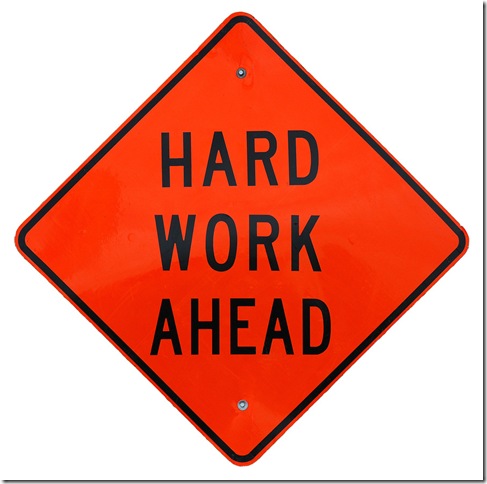
I received a note from one of our LinkedIn Job Search Discussion Group members today. By the way, if you’re not currently a member of our popular LinkedIn Discussion Group, you can join by clicking this link. He posed a great question after reading my latest blog postings on why it’s important to have an executive job search coach.
You can read the previous blog post on job search coaching by clicking the link here.
Here’s the question that was posed in the LinkedIn Discussion Group:
Just curious, what specifically could a job search coach instruct a talented executive to do that they don’t already know how to do themselves? Maybe the talent level of the executive plays a big part!
I’m going to assume that I did a terrible job making the point in my blog posting that in most cases, executives need a job search coach to help them conduct an effective job search.
Here’s my first recommendation (which by the way I suggested in the previous blog article):
Take our FREE 8-point self-assessment of your job search. If you can’t score in the upper levels consistently on every single item – you’re a candidate for job search coaching. You can download the FREE job search self-assessment by clicking here.
Let’s now assume you’ve taken the assessment and like most executives, your job search is only about 40-60% effective. This translates into the fact that if you had conducted an effective job search in the first place, you could have found a role most likely in 6 months – instead it’s now a year later and you find yourself back at square one with no real prospects.
What Can a Job Search Coach Do For YOU?
The next step is to determine if a job search coach can do something for you that you can’t do for yourself. A job search coach (such as the work Brad and I do with executives) can help in two fundamental ways:
- The job search coach can provide specific recommendations, techniques, and strategies that you are either not aware of OR are not effectively executing.
- The job search coach can hold you accountable to the multitude of job search tasks that must be completed daily and weekly to find a great opportunity quickly.
Let’s take a specific example to bring the dialogue down from 40,000 feet at a generic level to a precise illustration. This example is one tiny element of an overall effective job search:
One of the many tasks I do with my clients in job search coaching is to review the capability of their existing network to generate an abundance of job leads and referrals. One tiny element of this assessment/evaluation and improvement involves breaking down all your network contacts that you track (in ACT, Outlook, Goldmine, LinkedIn) and putting them in specific buckets.
Trusted Advisors as Networking Contacts
Let’s zoom down and get more specific in terms of one of the buckets or categories:
Trusted Advisors selling services to your future boss.
These Trusted Advisors are high level professionals who have a deep trust level with their clients – and their clients share lots of information, make requests, give and receive referrals in areas that have nothing to do with the Trusted Advisors’ functional expertise.
Why are Trusted Advisors an important networking contact “bucket” or category for executive job seekers?
Keep in mind that the hidden job market is roughly somewhere between 70-85% of all executive jobs (depending on where you get your information). At a minimum, 70% of all jobs you might be interested in are NOT published on job boards or advertised in the newspaper. Imagine what happens the next time a Trusted Advisor calls on a CFO and the CFO says “We’re looking at hiring a controller, who do you know?”
You want to be that referral.
Before that referral to you gets made, there are many steps to go through – including being able to identify the Trusted Advisor in the first place.
Unfortunately, less than 10% of all professional service providers could be tagged as a Trusted Advisor.
One of my tasks as a job search coach is to help guide you to identify the majority of trusted advisors in your geographic area that are selling services to your future boss. We’re just talking identification at this stage – we haven’t even moved to discussing the process of introduction, engagement, nurturing, and generating job leads and referrals from this specific networking “bucket” or category.
If I am a Trusted Advisor working for a payroll processing company and I suggest to the CFO that he/she should speak with you about their current controller opening – you’ve got an instant interview based on the strength of that Trusted Advisor Relationship. That’s the value of networking with not just anyone who sells services to CFOs – but rather networking with those who have the added credibility of being a Trusted Advisor.
I see from looking at your profile that you are a Controller. Let’s assume one of the titles for your future boss will be CFO. Who in your city or community sells payroll processing services to CFOs at the size of company you might be interested in joining? Now let’s expand our list to who are the top trusted advisors selling benefit programs, 401K processing services, temporary accounting services, CPA (tax and accounting/auditing) services, banking professionals? The list probably has 20-25 categories. You should have in your network the top 3 people for EACH of those categories.
The Value of a Job Search Coach
So, now let’s return to “what’s the value of a job search coach?” Here come some tough and introspective questions:
- Have you done this assessment of your network for trusted advisors?
- Have you made dramatic gains over the last 30 days in adding to your network these trusted advisors?
- Do you have the 60-75 trusted advisors in your network that are selling high level services directly to CFOs?
- Could you build this component of your network on your own within the next 30-60 days?
- Have you gone through an exercise to identify who the very best, well connected, influencers are in your local community selling services/products to CFOs?
- Who is missing from this bucket of network contacts?
- What’s your precise strategy to connect, engage, nurture them – and ultimately get them to open up their rolodex to you for job leads and referrals?
- Could you come up with a detailed plan to connect, engage, and generate numerous hot referrals on your own from Trusted Advisors?
- Have you even thought about how this is one of numerous high value activities and tactics in your job search?
- Do you have a specific written plan that you follow daily/weekly to build the “trusted advisor” bucket of your network?
- Have you established metrics to measure the effectiveness of this networking strategy and do you have corrective options and back-up plans?
- Have you established daily and weekly “stretch” goals for yourself around building your network with trusted advisors?
- Who is holding you accountable to hitting those goals and objectives every week? What’s the pressure, consequence, reprimand if don’t hit the goals. Do you have someone giving you “tough love?”
That’s a lot of detail and work to build your Trusted Advisor Network – and it’s only one small component of an overall effective job search.
Imagine a job search coach walking you step-by-step through hundreds of similar activities, tactics, and strategies.
The number one problem in whether to use a job search coach, such as myself or Brad, is that most executive job search candidates are “unconsciously incompetent” (see my previous blog posting on this subject by clicking the link here) – you don’t know what you should be doing to conduct an effective job search.
I would be willing to wager a bet that most executive job search candidates have not even considered this as a strategy, or if they have – there is confusion over how to get started (unconsciously incompetent).
How many other powerful and impactful job search strategies are you MISSING because you’re too proud to admit that maybe someone with the right expertise could offer a lot of value to you?
I couldn’t pretend for a moment that I could do your job as a Controller – why would you believe that you could do the job of an expert in the area of job search coaching?
I don’t mean for this to turn into a personal selling message. Whether it’s me, Brad, or some other job search coach – the key point I would like to end this message on is that for most executives it is critical to hire a job search coach to help you navigate the changing job search landscape in one of the worst job markets since the great depression.
Barry Deutsch














